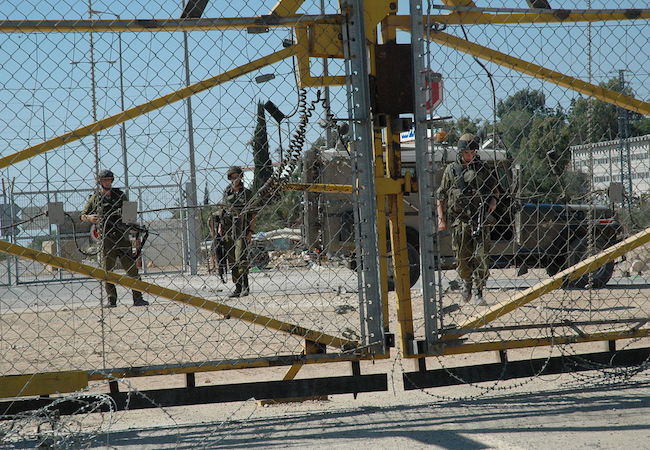Palestine: Hope amidst repression

By Abukar Arman
The growing insecurity in Jerusalem (Al-Quds) and other parts of Israel proper and the occupied territories are simply the symptoms of a more complex political issue that has been neglected and exploited.
The real historical context of the Israel-Palestine conflict is routinely muffled; only that all too familiar distorted narrative gets a pass, especially in the US commercial media. Though throughout history, countering the dominant narrative has never proven easy.
Make no mistake – with this latest violent uprising and draconian policies imposed to crush it – at stake is not only peace in Israel and Palestine or Middle East, but peace around the world.
Lost Opportunity
As soon as Barak Obama was elected president of the United States, a bipartisan group of ten former senior government officials that included the likes of Chuck Hagel, Zbigniew Brzezinski, and chaired by Brent Scowcroft, approached him with a document entitled The Last Chance for a Two-State Israel-Palestine Agreement. Their main concern was “Unless the president tackles this problem early it is unlikely to be done at all. Political capital will erode; domestic obstacles will grow; other issues will dominate; and the warring parties will play for time and run the clock.” The old ‘peace process’ model has resulted nothing more than a 22 years of spiraling hopelessness- apartheid repression, brutal violence, and systematic oppression. Among other things, the group recommended the city of “Jerusalem as home to both capitals.” That, needless to say fell onto deaf ears.
Today, the Palestinians demand the cancellation of the Oslo Accords that proved nothing more than “an endless process which has delivered neither an end to hostilities nor a coherent framework for peace.” The latter was impossible to achieve since Israel has been and continues to swallow the 1967 occupied territory where the Palestinian state was to be founded one settlement expansion at a time.
Anatomy of a Violent Intifada
Before readers delve into the argument made in this article, he or she must ask onself:
Would 67 years of systematic oppression that includes mass expulsion, arbitrary arrests, brutal military incursions, checkpoint of psychological subjugation, denial of basic human rights, and economic strangulation long enough to motivate anyone to defend him or herself by any means or snap and transgress beyond self-defense?
How long would it take the average person under similar circumstances to consider the violent option for self-preservation, and when he or she cannot find a suicide belt, a hand grenade, or an automatic weapon, take up on a slingshot or a kitchen knife to randomly stab those whom he or she considers the sustainers of his misery? Especially when settler extremists protected by the Israeli Special Forces periodically invade one’s holy site chanting this provocative chant “the mosque will burn and the temple rebuilt.” After all, self-preservation or self-defense is a universally accepted right mandated by the Geneva Conventions.
Demonization run amok
In an attempt to sustain the old anti-Palestinian narrative and deflect the role of his policies in inciting this latest outburst of violence, the Israeli Prime Minister Benjamin Netanyahu has resorted to dumbing down history by making an outlandish public claim that is on par with Colonel Gaddafi’s “al-Qaida drugged up the Libyan people’s coffee”.
Speaking to the World Zionist Congress before his trip to Germany, Netanyahu makes this bizarre assertion that in 1941: “Hitler didn’t want to exterminate the Jews at the time, he wanted to expel the Jews…And mufti of Jerusalem Haj Amin al-Husseini went to Hitler and said, ‘If you expel them, they’ll all come here.’” It gets eerily comical when he quotes Hitler meekly consulting the mufti “So what should I do with them?” and the mufti promptly responding with this holocaust epiphany “Burn them.”
There was a world-wide diplomatic censure, ridicule, and condemnation. “All Germans know the history of the murderous race mania of the Nazis that led to the break with civilization that was the Holocaust… We know that responsibility for this crime against humanity is German and very much our own,” said Chancellor Angela Merkel’s spokesman.
The harshest criticism of Netanyahu’s remarks came from the Jewish scholars, historians and politicians in Israel. Dina Porat, chief historian of Yad Vashem, called his wild remarks “completely erroneous, on all counts.”
Could This Turn Into a Religious War?
The simple answer is “Absolutely, yes; if it hasn’t already.” That said, it is time to reassess the Palestine-Israel issue through the faith prism. Jerusalem and the entire Holy Land is a sacred geographical area for all the Abrahamic faiths- Judaism, Christianity and Islam. Yet, there has never been a single interfaith conference lead by high profile clerics from all these three religious groups to deescalate religious tensions and have serious dialogue on how to share these sites.
Traditionally, the round tables of peace were always crowded by secularist politicians from both sides who often use religion for political expedience.
Now that the two-state solution is out of the question; that leaves only two plausible scenarios: The one-state solution or self-annihilation. Contrary to the naysayers, the one-state solution is a viable alternative for coexistence and sustainable peace.
If such option could work between blacks and Afrikaners of Apartheid South Africa, how would it be impossible between two Semitic ethnic peoples of Abrahamic roots? All that is needed is objective political will and broad-minded religious vision. We have no choice but to give it our collective best shot. It is our only hope.




